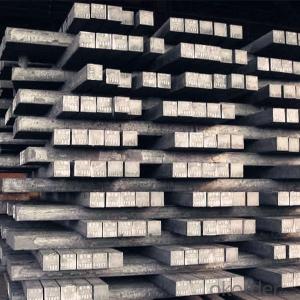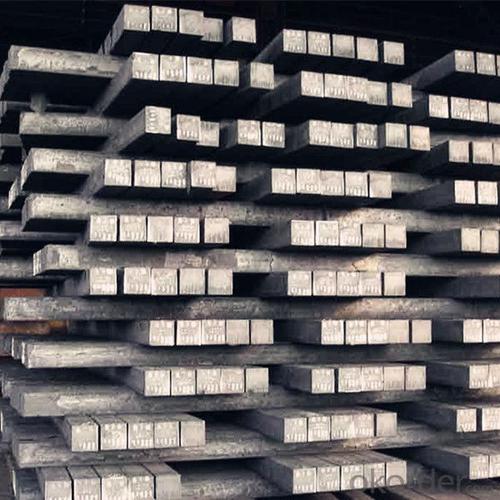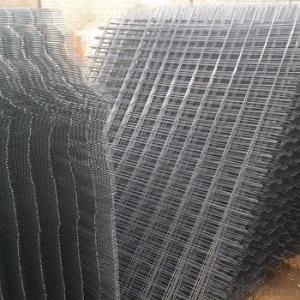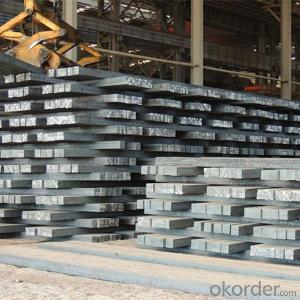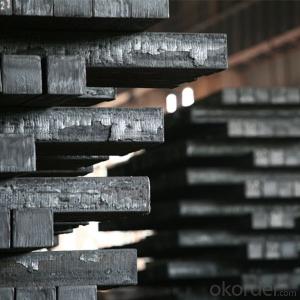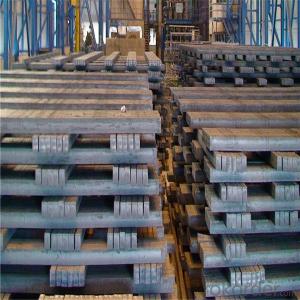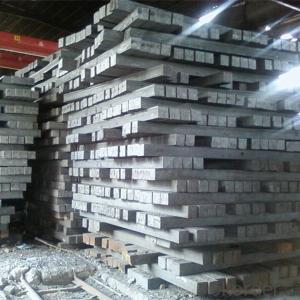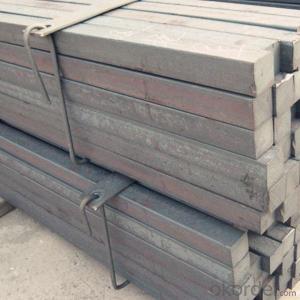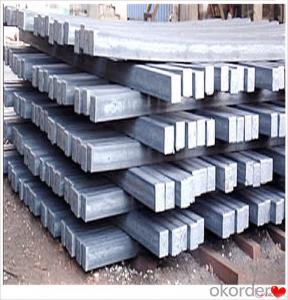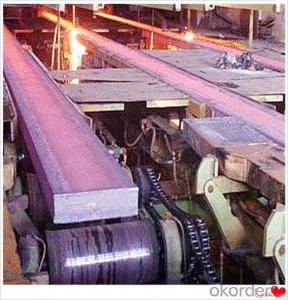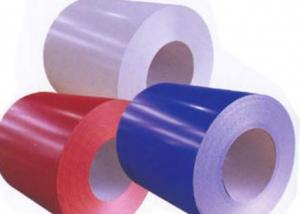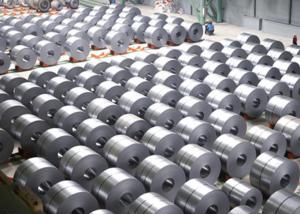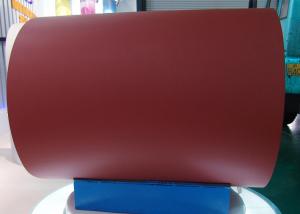Gbq195, Q235, Q275, JIS Ss400, 3sp, 4sp Steel Billets
- Loading Port:
- China main port
- Payment Terms:
- TT OR LC
- Min Order Qty:
- 20 m.t.
- Supply Capability:
- 50000 m.t./month
OKorder Service Pledge
OKorder Financial Service
You Might Also Like
Specification
Product Description
1.Executive Standard:GB,ASTM,DIN,JIS,BS
2.Product:Q195,Q235,Q275,SS400,S185,S235JR Steel Billets
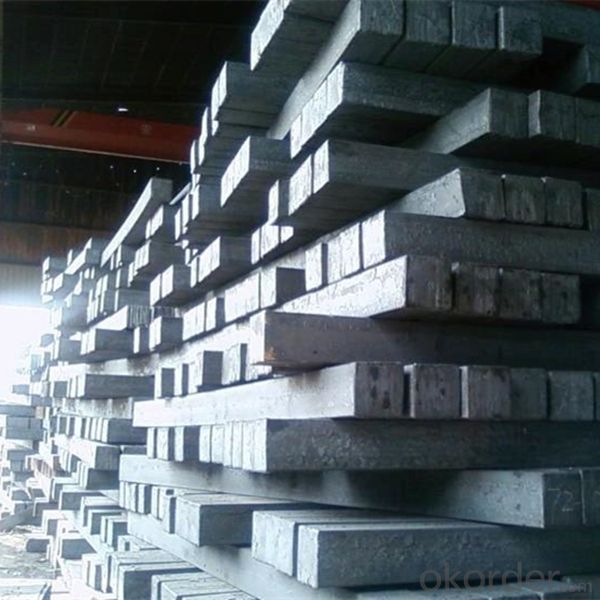
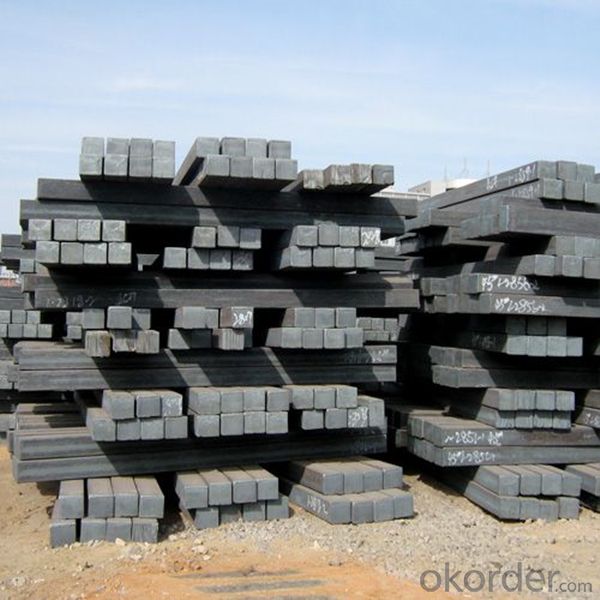
3.Process: Hot rolled
4.Application:These products are widely used in all kinds of architecture and engineering structure, such as the beam, Bridges, transmission tower, hoisting, ship,industrial furnace, container frame and warehouse and Other fields.
5.Surface Condition: Black or as required
6.MOQ:1000MT
7.Chemical Composition:
| Standard | C(%) | Mn(%) | S(%) | P(%) | Si(%) |
| Q195 | ≤0.12 | ≤0.50 | ≤0.040 | ≤0.035 | ≤0.30 |
| Q235 | ≤0.20 | ≤1.40 | ≤0.045 | ≤0.045 | ≤0.35 |
| Q275 | ≤0.22 | ≤1.50 | ≤0.045 | ≤0.045 | ≤0.35 |
| 20MnSi | 0.17-0.25 | 1.2-1.6 | ≤ 0.050 | ≤ 0.050 | 0.40-0.80 |
| 3SP | 0.14-0.22 | 0.40-0.85 | ≤ 0.050 | ≤ 0.040 | 0.05-0.15 |
| 5SP | 0.28-0.37 | 0.50-1.00 | ≤ 0.050 | ≤ 0.040 | 0.15-0.30 |
8. FAQ
1. Q: Where is your company located? How can I visit there?
A: Our company is located in Beijing, China. Welcome to visit us.
2. Q: Can I get sample and how long will it take?
A:Yes. We can supply sample. And you need to pay for courier.
3. Q: What's the MOQ?
A: Our MOQ is 25mt.
4. Q: What's the delivery time?
A: It will take about 30 days after TT or L/C.
5. Q: What is the payment terms?
A: T/T, L/C at sight
6. Q: How does your factory carry out quality control?
A: We attach great importance to quality control.Every part of our products has its own QC.
7. Q: What certificate do you have?
A: We have SGS, ISO9001 etc. Also we can apply any certificate if you need if the qty is OK.
- Q: What are the advantages of using steel in high-rise buildings?
- There are several advantages of using steel in high-rise buildings. Firstly, steel is known for its strength and durability, making it an ideal material to withstand the immense loads and stresses experienced by tall structures. It provides a high level of structural integrity, ensuring the safety of occupants. Secondly, steel's flexibility allows for efficient and versatile design options, enabling architects and engineers to create innovative and visually appealing skyscrapers. Additionally, steel is a lightweight material compared to other alternatives, reducing the overall weight of the building and allowing for more economical construction. Moreover, steel is highly resistant to fire, providing enhanced fire protection for the occupants. Lastly, steel is a sustainable choice as it is recyclable, reducing environmental impact and contributing to a greener construction industry.
- Q: How is steel used in the construction of parking structures and garages?
- Steel is commonly used in the construction of parking structures and garages due to its strength, durability, and ability to support heavy loads. It is used for the framework, columns, beams, and decking, providing a sturdy and robust structure that can withstand the weight of vehicles and ensure the safety of the parking facility. Additionally, steel can be easily fabricated and erected, making it a popular choice in the construction industry for parking structures.
- Q: How does the thickness of steel affect its strength?
- The thickness of steel directly affects its strength. Generally, thicker steel tends to be stronger and more resistant to deformation or failure under load. This is because thicker steel has a greater cross-sectional area, which allows it to distribute and withstand forces more effectively. Thicker steel also provides a larger volume for the material to absorb energy before reaching its breaking point. However, it is important to note that there is a trade-off between thickness and other factors such as weight and cost, so the optimal thickness depends on the specific application and requirements.
- Q: What are the different types of steel reinforcement meshes?
- There are several different types of steel reinforcement meshes used in construction, including welded wire mesh, expanded metal mesh, and ribbed or deformed steel bars.
- Q: How is steel used in the production of automotive components?
- Steel is commonly used in the production of automotive components due to its strength, durability, and cost-effectiveness. It is used in various parts such as body panels, chassis, suspension systems, and engine components. Steel provides the necessary structural integrity and impact resistance needed for safe and reliable vehicles.
- Q: How are steel pipes used in the transportation of chemicals?
- Steel pipes are commonly used in the transportation of chemicals due to their high strength and durability. They are designed to withstand the corrosive nature of many chemicals and can safely transport them over long distances. The smooth interior surface of steel pipes also helps to minimize friction and maintain the purity of the chemicals being transported. Additionally, steel pipes can be easily connected and installed, making them a reliable choice for the transportation of chemicals in various industries.
- Q: What are the common types of steel products used in the pet training and behavior industry?
- Common types of steel products used in the pet training and behavior industry include dog training collars, leashes, and various types of containment systems such as crates, kennels, and fencing.
- Q: How is steel used in the transportation industry?
- Steel is used in the transportation industry for various purposes, such as constructing the body and chassis of vehicles, manufacturing rail tracks, and producing infrastructure for bridges and tunnels. Its strength, durability, and ability to withstand high pressures and impacts make it an ideal material for ensuring the safety and reliability of transportation systems.
- Q: How can steel products be protected from corrosion?
- Steel products can be protected from corrosion through various methods such as applying protective coatings like paint or zinc, using corrosion-resistant alloys, electroplating, galvanizing, and implementing proper maintenance practices like regular cleaning and inspection.
- Q: What are the different types of steel chains and their uses in the automotive manufacturing process?
- There are several types of steel chains used in the automotive manufacturing process. Some common ones include roller chains, timing chains, and drive chains. Roller chains are used for transmitting power and motion in various parts of the vehicle, such as the engine, transmission, and differential. Timing chains are responsible for synchronizing the engine's camshaft and crankshaft, ensuring proper valve timing. Drive chains are used in applications where power needs to be transferred from the engine to the wheels, such as in motorcycles or off-road vehicles. Overall, steel chains play a crucial role in maintaining the functionality and performance of various automotive components.
Send your message to us
Gbq195, Q235, Q275, JIS Ss400, 3sp, 4sp Steel Billets
- Loading Port:
- China main port
- Payment Terms:
- TT OR LC
- Min Order Qty:
- 20 m.t.
- Supply Capability:
- 50000 m.t./month
OKorder Service Pledge
OKorder Financial Service
Similar products
Hot products
Hot Searches
Related keywords
